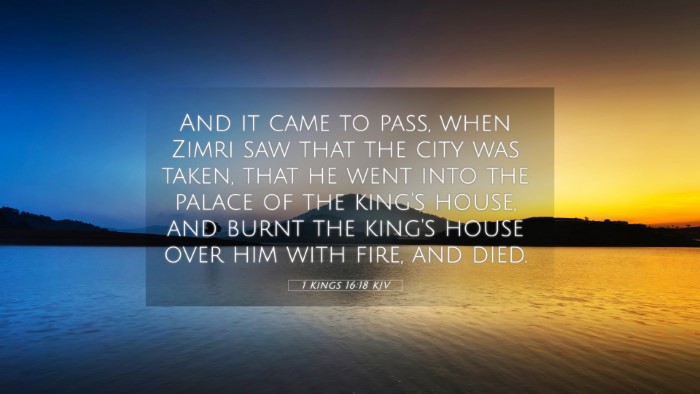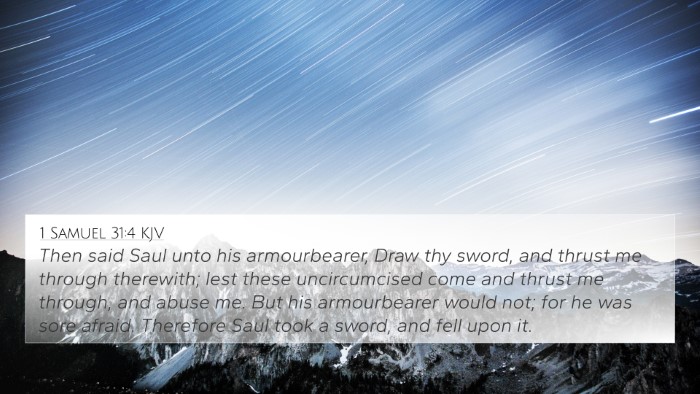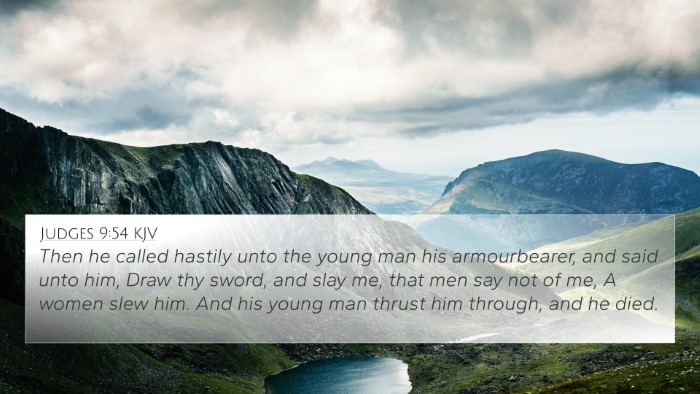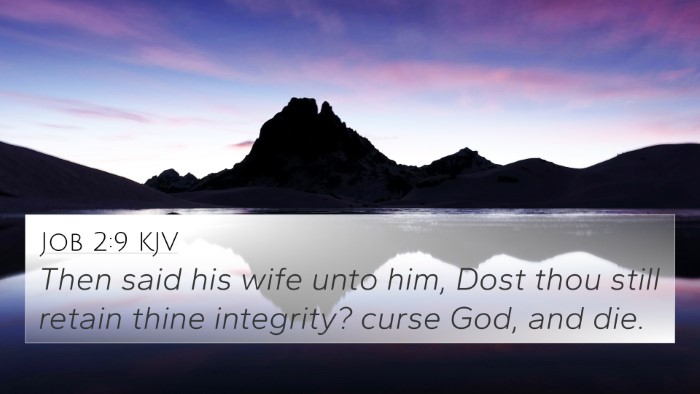Explanation of 1 Kings 16:18
1 Kings 16:18 captures a pivotal moment in the narrative surrounding King Zimri, outlining his ultimate fate after a tumultuous reign. This verse serves as a profound reflection on the themes of accountability, divine judgment, and the fleeting nature of power.
Contextual Background
In understanding 1 Kings 16:18, it is crucial to consider the historical and theological context of the passage. Zimri, having recently ascended to the throne through violent means, illustrates the chaos and instability within the kingdom of Israel during this period. His sudden rise and swift downfall serve as a warning about the consequences of sin and rebellion against God.
Verse Summary
1 Kings 16:18: "And it came to pass, when Zimri saw that the city was taken, that he went into the palace of the king's house, and burnt the king's house over him with fire, and died, because of his sins which he sinned in doing evil in the sight of the Lord, in walking in the way of Jeroboam, and in his sin which he did, to make Israel to sin."
Thematic Analysis
This verse encapsulates several significant themes:
- Judgment and Accountability: Zimri's end serves as a clear indication of God's judgment against leaders who stray from righteousness.
- The Nature of Sin: The verse highlights Zimri's sins, particularly his alignment with Jeroboam’s idolatry, illustrating how leaders can lead a nation astray.
- The Result of Rebellion: The ultimate demise of Zimri signifies the consequential nature of rebellion against God's commandments.
Insights from Public Domain Commentaries
Matthew Henry
Matthew Henry notes how Zimri's actions demonstrate the futility of attempting to secure one's position through unrighteous means. Henry emphasizes that Zimri’s end reflects the just nature of God, who does not allow evil to prosper indefinitely.
Albert Barnes
Albert Barnes comments on Zimri's choice to end his life by setting the palace ablaze, emphasizing this act as a cowardly escape from facing the consequences of his actions. Barnes points out that this highlights a critical moral lesson about the importance of integrity and the risks of illicit power.
Adam Clarke
Adam Clarke elaborates on the depth of Zimri's sin, connecting it to the historical context of Israel’s idolatrous practices. Clarke underscores that Zimri's motivations were deeply flawed, ultimately leading to his tragic end.
Bible Cross References
This verse resonates with several other passages that elucidate its themes. Here are some key Bible cross-references:
- 1 Kings 14:16: Referring to the sins of Jeroboam and how they led Israel astray.
- 2 Chronicles 21:18-19: Illustrating divine judgment on an unrepentant king.
- Galatians 6:7-8: "For whatsoever a man soweth, that shall he also reap," reinforcing the consequences of one's actions.
- Proverbs 10:16: Highlighting the difference between the labor of the righteous and the ways of the wicked.
- Isaiah 51:6: The transient nature of worldly kingdoms versus the eternal stability of God’s kingdom.
- Revelation 21:8: Addressing the ultimate fate of the wicked and unrepentant.
- Romans 1:18: God’s wrath against all ungodliness reflects the themes present in 1 Kings 16:18.
Lessons Learned
From 1 Kings 16:18, readers can derive powerful lessons pertinent to their lives:
- The Cost of Sin: The verse serves as a stark reminder that sin can lead to ruin not only for individuals but also for nations.
- The Importance of Righteous Leadership: This passage challenges leaders at all levels to adhere to moral and ethical principles to avoid misguiding those they lead.
- Consequences Matter: Just as Zimri faced dire consequences for his actions, every individual will ultimately face the repercussions of their decisions in light of God’s standards.
Concluding Thoughts
Through careful analysis of 1 Kings 16:18, one can see the importance of aligning oneself with the teachings of scripture. Engaging in Bible cross-referencing and understanding the interconnectedness of scriptures enhances one’s comprehension of divine principles and encourages a deeper pursuit of righteous living.
Recommendations for Further Study
For those interested in exploring the connections further, consider utilizing tools such as:
- Bible concordance to locate related verses.
- Cross-reference guides for in-depth thematic studies.
- Comprehensive Bible reference resources for a thorough examination of relevant texts.







